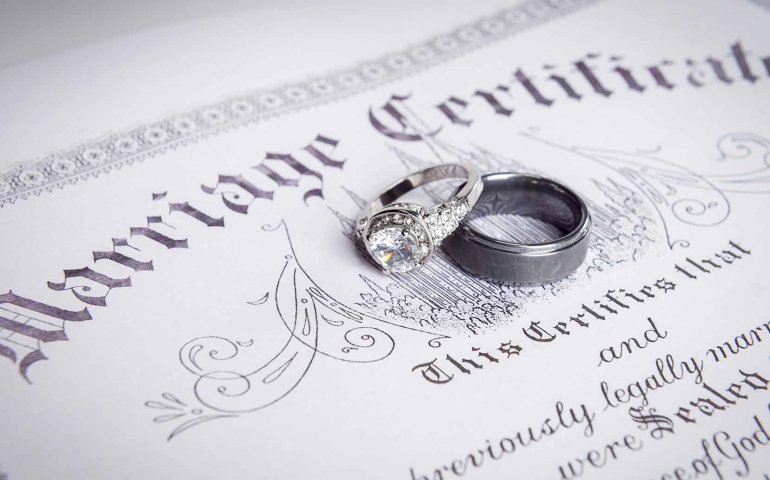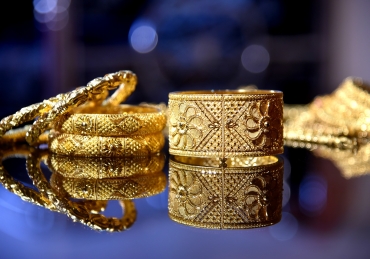Can wife change surname after marriage?
Question
What is the Islamic position on a wife changing her surname after marriage to her husband’s surname? Is it an innovation? Does it fall within the prohibition of attributing one’s self to someone other than their father?
بسم الله الرحمن الرحیم
Answer
It is permissible for a wife to change her surname to her husband’s surname if she wishes to do so. This is neither compulsory or recommended, nor is it prohibited or disliked. It is permissible and ultimately a matter of individual choice. It is not regarded an Islamic practice and therefore is not an innovation.
Sometimes the wife’s surname is changed for convenience and to avoid confusion, for example when travelling abroad, or for cohesion so that all family members have the same surname. Sometimes the surname is not changed to avoid the complications of changing the surname on official documents and retaining the surname of one’s parents. Beyond this, sometimes the surname of males and females is changed from the parent’s surname to the father’s or grandfather’s forename. In all these scenarios, changing the surname is permissible.
Changing surname in the specific context of the wife or more generally does not fall within the prohibition of attributing one’s self to someone other than the real father. When a surname is changed, one does not negate their father. The prohibition would apply if a person was to deny their father, for example by changing the father’s name to someone else on the birth certificate. The Prophet ﷺ said, “He who attributes his fatherhood to anyone besides his real father, whilst knowing that he is not his father, then Jannah will be forbidden upon him” (Ṣaḥīḥ al-Bukhārī, 6766, 4326). The Prophet ﷺ also said, “No person who claims knowingly anyone else as his father (besides his) has committed an act of disbelief, and if somebody claims to belong to some folk to whom he does not belong, let such a person take his place in the Hell Fire” (Ṣaḥīḥ al-Bukhārī, 3508). In another ḥadīth, this is described as the greatest of lies (Ṣaḥīḥ al-Bukhārī, 3509) and another ḥadīth mentions that the curse of Allah, the angels and the people is upon such a person (Ṣaḥīḥ Muslim, 1370).
However, changing the surname does not in any way negate one’s connection with their father and does not explicitly or implicitly suggest that the father is someone else. This is a well-accepted norm within society and no such inference is made or even thought of. Therefore, changing surname does not in any way fall within the aforementioned ḥadīths.
It appears that some people have misunderstood the concept of a surname. Consider the following from Encyclopaedia Britannica:
“Surname, also called family name, or last name, name added to a “given” name, in many cases inherited and held in common by members of a family. Originally, many surnames identified a person by his connection with another person, usually his father (Johnson, MacDonald); others gave his residence (Orleans, York, Atwood [i.e., living at the woods]) or occupation (Weaver, Hooper, Taylor). A surname could also be descriptive of a person’s appearance (Little, Red) or his exploits (Armstrong).”
This clearly affirms that a surname is not necessarily based on one’s own father’s name, nor does it necessarily indicate the identity of the father. It is for this reason, birth certificates specify the name of the parents. If it is accepted for a moment that a surname is based on the father’s name, changing it would not be prohibited unless the change infers that the father is someone else. On this narrow point, take the example of Imam Muḥammad ibn al-Ḥanafiyyah (d. 81/700-1) who is attributed to his mother for a specific reason. This does not negate his father ʿAlī ibn Abī Ṭālib (d. 40/661) (may Allah be pleased with him). There are many similar examples. In addition, on one occasion, the Prophet ﷺ said, “I am the son of ʿAbd al-Muṭṭalib” referring to his grandfather.
To conclude, it is permissible for a wife to change their surname after marriage if they wish to do so.
عن سعد بن أبي وقاص مرفوعا: من ادعى إلى غير أبيه وهو يعلم أنه غير أبيه، فالجنة عليه حرام، رواه البخاري (٦٧٦٦ و ٤٣٢٦). وعن أبي ذر مرفوعا: ليس من رجل ادعى لغير أبيه وهو يعلمه إلا كفر، ومن ادعى قوما ليس له فيهم فليتبوأ مقعده من النار. وعن واثلة بن الأسقع مرفوعا: إن من أعظم الفرى أن يدعي الرجل إلى غير أبيه، أو يري عينه ما لم تر، أو يقول على رسول الله صلى الله عليه وسلم ما لم يقل. وعن أبي هريرة مرفوعا: لا ترغبوا عن آبائكم، فمن رغب عن أبيه فهو كفر، رواها البخاري (٣٥٠٨ و ٣٥٠٩ و ٦٧٦٨). وعن علي بن أبي طالب في حديث الصحيفة: ومن ادعى إلى غير أبيه أو انتمى إلى غير مواليه، فعليه لعنة الله والملائكة والناس أجمعين، لا يقبل الله منه يوم القيامة صرفا ولا عدلا، رواه مسلم (١٣٧٠)۔
قال القاضي عياض في إكمال المعلم (٤/٤٨٩): وذكر ما جاء في هذا الحديث من الوعيد واللعنة على من ادعى إلى غير أبيه، أو انتمى لغير مواليه، مما يدل على عظم ذلك، لما فيه من كفر النعمة للمنعمين بالعتق وحق الآباء وولائهم وتربيتهم صغارا، وتكلف مؤنهم من قطع الأنساب والأرحام التي أمر الله أن توصل، واختلاط ذلك، ونقل المواريث وحقوق الولاء والولاية لغير أربابها، وظلمهم بذلك، انتهى۔
وقال المظهري في شرح المصابيح (٣/٣٦٨): قوله (من ادعى إلى غير أبيه) أي من انتسب إلى غير أبيه، كما يقول ابن زيد: أنا ابن عمرو، انتهى۔
وقال أبو العباس القرطبي في المفهم (١/٢٥٤): وقوله (ليس من رجل ادعى لغير أبيه وهو يعلمه إلا كفر) أي: انتسب لغير أبيه رغبة عنه مع علمه به. وهذا إنما يفعله أهل الجفاء والجهل والكبر، لخسة منصب الأب ودناءته، فيرى الانتساب إليه عارا ونقصا في حقه، انتهى۔
وقال الشاه ولي الله الدهلوي في حجة الله البالغة (٢/٢٢٢): من الناس من يقصد مقاصد دَنِيَّة، فيرغب عن أبيه، وينتسب إلى غيره، وهو ظلم وعقوق لأنه تخييب أبيه، فإنه طلب بقاء نسله المنسوب اليه المتفرع عليه، وترك شكر نعمته وإساءة معه، وأيضا فإن النصرة والمعاونة لا بد منها في نظام الحي والمدينة، ولو فتح باب الانتفاء من الأب لأهملت هذه المصلحة ولاختلطت أنساب القبائل، انتهى۔
وقال الدكتور موسى شاهين لاشين في فتح المنعم (١/٢٣١): كان العرب في الجاهلية يستبيحون أن يتبنى الرجل ولد غيره، فلا ينسب الولد إلى أبيه الحقيقي، وإنما ينسب إلى الذي تبناه، ويصبح له حق الولد من النسب من جميع النواحي، حتى نزل قوله تعالى: وما جعل أدعياءكم أبناءكم ذلكم قولكم بأفواهكم والله يقول الحق وهو يهدي السبيل ادعوهم لآبائهم هو أقسط عند الله فإن لم تعلموا آباءهم فإخوانكم في الدين ومواليكم وليس عليكم جناح فيما أخطأتم به ولكن ما تعمدت قلوبكم وكان الله غفورا رحيما (الأحزاب). فحرم التبني ووجبت نسبة كل واحد إلى أبيه الحقيقي، لكن العادات العربية المتأصلة المتركزة لم يكن من السهل اقتلاعها دون تخويف ووعيد، فجاءت هذه الأحاديث مهددة منذرة بالكفر وبتحريم الجنة، انتهى۔
وقال أبو عبد الله القرطبي في التفسير (١٤/١٢٠): ولا يجري هذا المجرى ما غلب عليه اسم التبني كالحال في المقداد بن عمرو، فإنه كان غلب عليه نسب التبني، فلا يكاد يعرف إلا بالمقداد بن الأسود، فإن الأسود بن عبد يغوث كان قد تبناه في الجاهلية وعرف به. فلما نزلت الآية قال المقداد: أنا ابن عمرو، ومع ذلك فبقي الإطلاق عليه. قال: وكذلك سالم مولى أبي حذيفة كان يدعى لأبي حذيفة، انتهى. وأصله في كلام ابن بطال في شرح البخاري (٨/٣٨٣) عن الطبري۔
وقال النبي صلى الله عليه وسلم يوم حنين: أنا النبي لا كذب، أنا ابن عبد المطلب، رواه البخاري (٢٨٦٤)۔
Allah knows best
Yusuf Shabbir
15 Ṣafar 1442 / 3 October 2020
Approved by: Mufti Shabbir Ahmed and Mufti Muhammad Tahir






